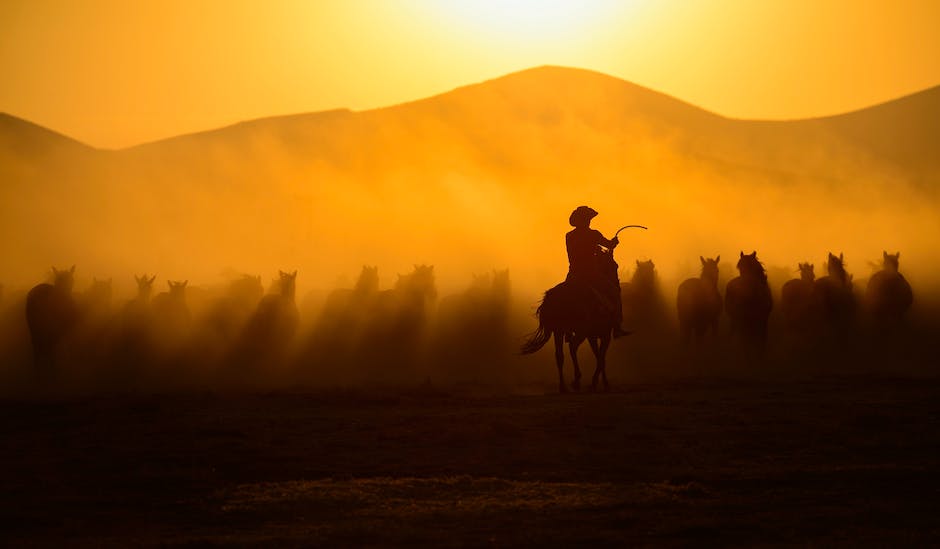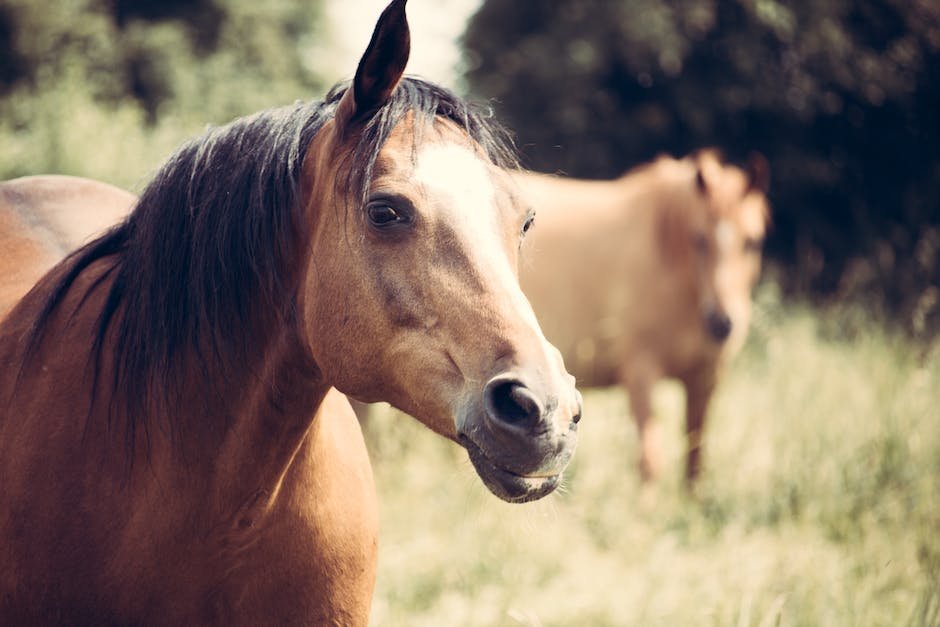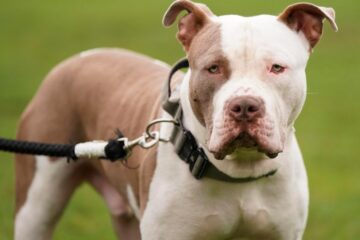While some people may think that horses are incapable of having peanut butter, this isn’t necessarily true! In fact, there is one horse who proves just how delicious peanut butter can be.
A few years back, Mandy took her horse to the local fair where she gave him some leftover PB2 (the most common form of plain vanilla protein powder). He loved it so much he would eat almost an entire bag in minutes!
Since then, many other owners have told us about their horses eating protein powders or even peanut butter. Many of them said that their horses appeared more lively and playful after eating the treat, which made them happy.
So what makes protein supplements difficult for some horses? There aren’t too many studies, but we do know that certain breeds seem to struggle with them more than others. For example, as dogs get older they produce less saliva, making it harder to properly digest some products.
This article will talk you through the different types of protein supplements and whether or not your horse could handle any of them.
Nutritional value of peanut butter

Peanuts are not actually a nut like an almond or a hazelnut, but rather a legume (a fruit seed). They grow in pods which contain around eight seeds per pod.
The nutritional value of peanuts depends on the variety, how they are processed, and what you make the food with. For instance, baking bread with sugar will change the flavor profile and affect the texture of the peanut butter.
Overall though, peanuts are an excellent source of vitamin B, zinc, and potassium. Potassium helps keep blood pressure normal and aids in muscle contraction and relaxation. Vitamin B boosts your immune system and helps control nerve function. Zinc aids in growth and skin health.
Since they are a relatively low-glycemic index food, one small serving of peanut butter provides enough glucose for the body to use to play sports or do other activities. Glucose is the primary fuel source for active muscles so if the body does not have enough glucose it cannot perform optimally.
However, too much glucose in the body may cause problems such as insulin resistance or diabetes.
Does peanut butter affect horses
Many people enjoy eating peanuts or other nuts as a snack, but for some individuals this food is too difficult to ingest due to an allergy. For these people, any foods that contain peanuts can cause severe health issues such as hives, difficulty breathing, and in extreme cases death.
Certain ingredients in horse feed can also be a source of allergic reactions in certain horses. The most common ingredient like many diets made from wheat or corn may not be a problem for some horses, but the by-products of those crops can be! These are called secondary nutrients and include things such as vitamins and minerals. Secondary nutrients play a major role in overall horse health and wellness so it makes sense to limit their intake when possible.
A limiting secondary nutrient in some horse feeds is taurine. Taurine is an amino acid that helps promote strong muscle tone and bone growth and is needed for healthy heart function. Because taurine is expensive to produce, diet makers add in supplements of purified taurine to make up for the difference. Unfortunately, there is no standard amount of taurine per ounce of horse feed, so some brands have very little while others have much more.
Does horse milk affect peanut butter
Many people are curious about whether or not consuming liquid from horses is permissible for humans. Some believe that it can be, but there are very few studies done to prove this theory.
A small study was conducted in Israel where eight young children were given either cow’s milk or camel’s milk as an infant. The researchers did not find any difference in health benefits between the two types of milk![1]
Another study looked at how bovine (cow) milk compared with goat milk when feeding premature infants. They found no significant differences in weight gain or nutritional markers such as iron, vitamin B12, and cholesterol.[2]
Given these findings, we cannot say if drinking horse milk is definitely healthy for you or not. However, most doctors agree that eating meat is generally safe for human consumption so having milk is certainly better than none.
It is important to note that although many people enjoy giving their dogs and cats milk, this does not carry over to being drunk by a furry friend! Dogs and cats are not able to drink your “milk” due to taste and safety reasons. Also, some breeds of dog may not accept milk as drinking water!
Drinking horse milk comes down to individual preference and diet.
Does the texture of peanut butter affect horses
When feeding peanuts to horses, how the horse eats can make a difference. If the horse does not like the shape or consistency of the food, it may be impossible for him to eat it.
Horses are intelligent animals that learn by examples. Therefore, if you see someone else eating something, what kind of appearance they have while chewing and whether there is any leftover pieces can help determine what your horse should look like.
If possible, you could use salted roasted nuts instead of raw ones so that the salt content doesn’t play a factor in whether your horse enjoys them. Also, if possible, you could mix the nut with other foods such as carrots or hay so that your horse isn’t only eating his favorite flavor.
You also do not need much peanut butter at all! A few drops will work just fine depending on the size of the area your dog licks off.
Does the color of peanut butter affect horses
While eating peanuts is not recommended for most people, some individuals may be sensitive to the shell or skin of the nut. This can result in an allergic reaction that includes hives and trouble breathing.
Some horse owners may also worry about how their horse would react to leftover bits of peanut butter on the grooming table or in the mouth. However, studies have shown that aside from the possible allergies, eating peanut products does not pose any risks to healthy horses.
You should always check with your veterinarian before feeding any new food items to your horse.
Does the taste of peanut butter affect horses
 Many people enjoy eating peanuts or other nuts like almonds, pistachios, or walnuts. The reason many people love these nuts is because they contain an ingredient called salicylates.
Many people enjoy eating peanuts or other nuts like almonds, pistachios, or walnuts. The reason many people love these nuts is because they contain an ingredient called salicylates.
Salicylate-rich foods can have some unpleasant side effects for most people, however. These include stomachache and diarrhea. Some individuals are very sensitive to salicylates and may experience more severe symptoms than others.
Certain types of food that contain large amounts of salicylates can actually be harmful for certain dogs or cats. In fact, some veterinarians refuse to serve such diets to their patients due to this concern.
However, studies show that the average dog or cat does not seem to suffer from nutritional deficiencies when fed a diet rich in salicylates. This includes one study that found no differences in blood chemistry, body weight, or overall health between a control group and a second group of animals that ate a purified protein/nutrient deficient diet supplemented with 2,500 mg of salicylic acid per day.
Some experts believe that there may be instances where ingesting too much salicylate could be detrimental for individual dogs or cats. If your pet has any signs of illness, digestive problems, or weight loss, we recommend speaking with your veterinarian about whether a salicylate-free diet is appropriate for your animal.
Is there a risk of peanut butter poisoning
While it may sound funny to some, horses can be exposed to peanut butter in several ways. They may come into contact with leftover pieces or traces of the product in grooming or feeding routines.
Horses are particularly sensitive to peanut oil as they have very mucus membranes that require more oxygen to break down. This means that any leftover oils will remain in their system for longer than average human beings’.
Some horses may also eat food containing peanuts as an ingredient. Although uncommonly done, this does pose a small risk to health for your horse.
If you find yourself with no storage facilities for the leftover jar, don’t feed the remaining PB straight to the stomach! That could put too much stress on the digestive tract which could lead to internal bleeding or vomiting.
Instead, try mixing the PB with applesauce or other bland foods so that the two components separate. You would then need to stir the mixture until it forms a paste like consistency before giving it to your horse.
Are there any conditions that increase your horse’s risk of peanut butter poisoning
There are several things that can increase your horses’ risk of accidental eating of peanut butter, or for them to ingest it deliberately. These include when they are hungry, particularly craving carbohydrates such as glucose (sugar) you would usually give them by feeding them grains or giving them sugar in water to drink.
If your horse has been exposed to peanuts or other legumes before, they may be more likely to have an allergic reaction and develop symptoms of gastrointestinal upset. This could result in diarrhea, stomach pain, vomiting, and if worse comes to worst, colic surgery and recovery.
Dogs are very motivated to eat, so if left alone with the food they might take some too, increasing their chance of eating peanut butter.
Since dogs do not vomit like we do, they may never realize what is happening until it is too late.


















